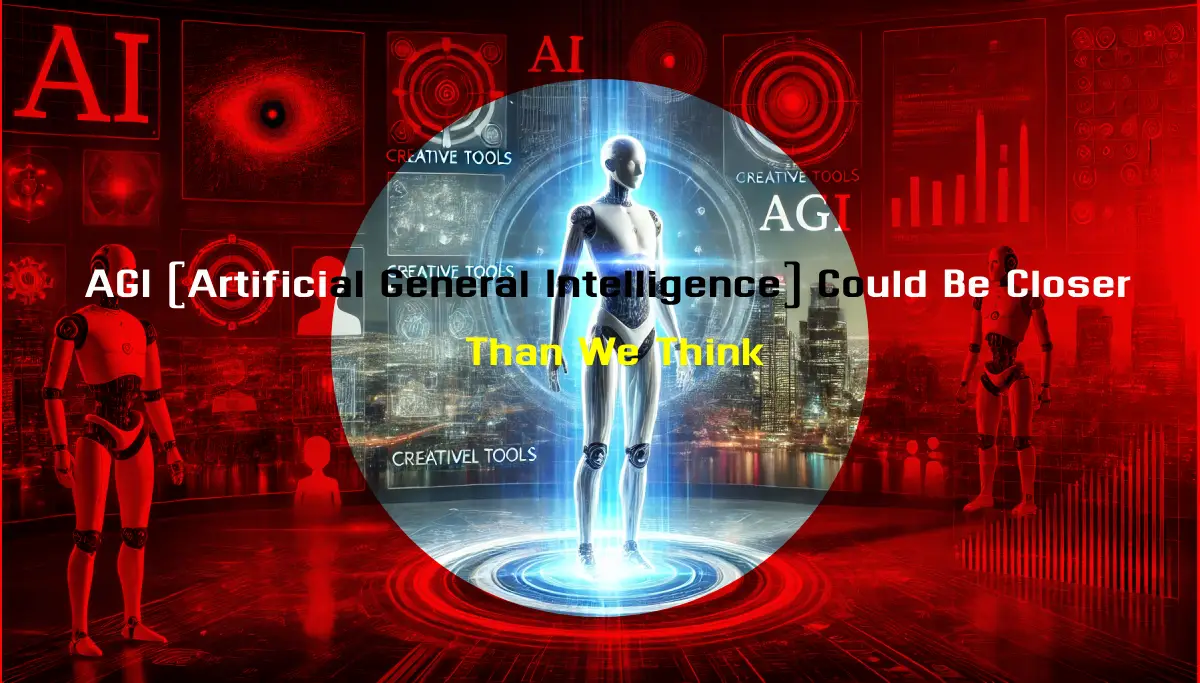AGI refers to AI systems that can perform any intellectual task a human can. Achieving AGI has been a long-standing goal for AI researchers. Excitingly:
- Sam Altman, CEO of OpenAI, predicts AGI could be achieved by 2025.
- Dario Amodei, CEO of Anthropic, suggests a slightly later timeline, between 2026 and 2027, while acknowledging that factors like global events might influence progress.
These predictions highlight the fast pace of AI evolution, bringing us closer to machines capable of reasoning and problem-solving like humans.
2. The Debate Around AGI Definitions
While AGI’s arrival feels imminent, there’s a hurdle: no universal agreement on what AGI truly means. AI companies often have different criteria for what qualifies as AGI.
- Some experts believe we might cross critical AGI milestones without even realizing it, simply because of this lack of consensus.
- The challenge of defining AGI is a reminder that technological milestones require more than innovation—they also need clarity.
3. Is AI Progress Slowing?
Recent reports suggest a slowdown in AI advancements, particularly in training models. However, this doesn’t mean innovation is halting.
- Bloomberg and The Information reported that AI development in some areas, like training larger models, has faced challenges.
- On the flip side, improvements in inference (how AI interprets and responds to prompts) are pushing the field forward. These innovations ensure AI remains efficient and impactful.
4. Game-Changing Features from OpenAI
OpenAI continues to lead the charge in AI innovation with new features designed to enhance user experiences:
- Agentic AI: Coming in January, this feature will let ChatGPT interact directly with apps on your computer. Imagine an AI that can manage your files, write emails, or schedule appointments without leaving your desktop.
- ChatGPT Desktop App: Now available, it supports limited app context reading, making it a handy tool for developers using environments like Xcode.
These updates mark a shift toward more functional and integrated AI tools in everyday life.
5. Google Gemini Surpasses Expectations
Google’s Gemini 1.5, launched in November, is leading the AI race:
- It outperformed OpenAI’s GPT models on the Chatbot Arena leaderboard, setting new benchmarks for chatbot intelligence.
- The Gemini iPhone app introduced features like quizzing users based on photos, making it more interactive and engaging.
Google’s advancements emphasize the growing competition among tech giants to dominate the AI space.
6. AI-Powered Creativity with YouTube and Video Tools
AI is also revolutionizing the creative industry:
- YouTube’s AI Music Remix Tool: This tool allows creators to remix licensed music for Shorts. It’s a win-win for creativity and copyright compliance.
- Video AI Breakthroughs: Tools like Google’s “Recapture” and “Auto VFX” enable creators to generate new angles or effects for existing video scenes. These innovations simplify video editing while unlocking endless creative possibilities.
7. Anthropic’s Prompt Improvement Tool
Crafting effective AI prompts can be tricky. Anthropic has introduced a tool to make it easier:
- This feature helps users create optimized prompts for better responses, focusing on step-by-step reasoning.
- It’s especially useful for professionals who rely on AI for research, content creation, or problem-solving.
Better prompts mean better results, making this tool a game-changer.
8. Enhanced AI Audio Capabilities
Audio technology is advancing with tools like 11 Labs:
- They’ve introduced tools for audio editing and creating audiobook-style content.
- Celebrity voice additions, such as Jerry Garcia, allow creators to produce unique, high-quality audio projects.
These updates are especially exciting for podcasters, content creators, and audiobook producers.
9. Leadership Changes Signal Fresh Momentum
Leadership plays a crucial role in driving innovation. Greg Brockman, OpenAI’s co-founder and president, has returned from a sabbatical. His comeback signals renewed energy and focus for OpenAI as it continues to break barriers in AI development.
10. What Does This Mean for You?
All these advancements mean AI is becoming more powerful and accessible. Whether you’re a business owner, content creator, or tech enthusiast, there’s something for everyone:
- Entrepreneurs can use AI tools for automation and decision-making.
- Creators can leverage AI for videos, audio, and engaging content.
- Students and researchers can rely on AI for learning and innovation.
Challenges to Watch Out For
Despite the excitement, challenges remain:
- Ethical concerns about AI misuse.
- Uneven access to advanced tools, especially in underdeveloped regions.
- Potential job disruptions as AI takes over repetitive tasks.
Addressing these challenges is critical to ensuring AI benefits everyone.
Conclusion
The future of AI is thrilling and filled with potential. From the possibility of AGI by 2025 to tools that empower creators and businesses, the opportunities are endless. However, as we embrace these advancements, it’s important to remain mindful of the challenges and ethical considerations.
2024 is shaping up to be a pivotal year for AI. Whether you’re looking to innovate, create, or simply stay informed, now is the time to engage with this transformative technology.
